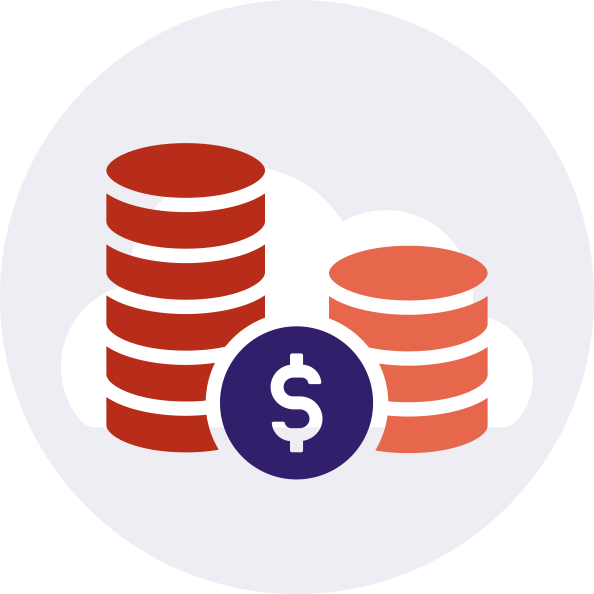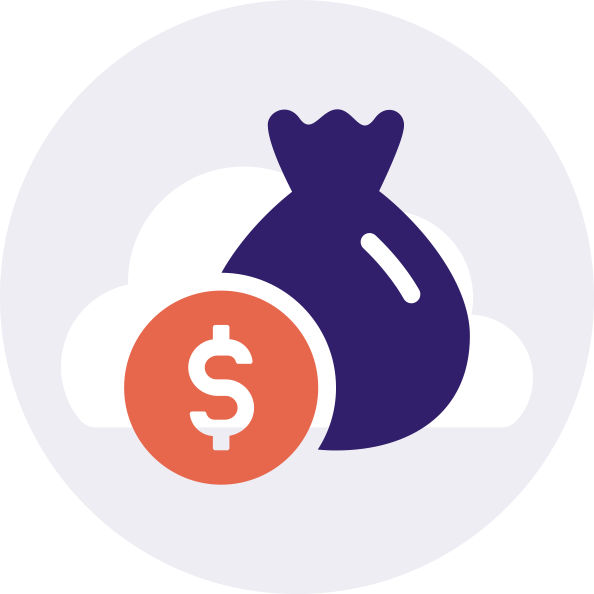
Insights for candidates
Permanent Salesforce professionals
What are the main things hiring managers look for in a Salesforce candidate during a job interview?
The hiring managers that took part in our survey told us that there are on average four steps to the hiring process in their organization. This includes an initial application, a number of interviews, and in some cases a competency test. Similarly, recent candidates completed an average of three interview stages for their current role.
Factors that impact on your earning potential according to our respondents
| Important | Neutral | Unimportant | |
|---|---|---|---|
| Years of technical experience with Salesforce | 95% | 4% | 2% |
| Exposure to large projects | 87% | 11% | 3% |
| Years of experience in IT | 83% | 12% | 3% |
| Salesforce certifications | 77% | 16% | 7% |
| Becoming a Salesforce product specialist (e.g. working with Salesforce Industries [Vlocity], CPQ, FSL, Sales and Service Cloud) | 77% | 16% | 7% |
| Specific vertical industry experience | 65% | 28% | 6% |
| College/University degree(s) | 63% | 20% | 16% |
| Working with AI | 47% | 38% | 16% |
Years of technical experience with Salesforce
| Important | Neutral | Unimportant |
|---|---|---|
| 95% | 4% | 2% |
Exposure to large projects
| Important | Neutral | Unimportant |
|---|---|---|
| 87% | 11% | 3% |
Years of experience in IT
| Important | Neutral | Unimportant |
|---|---|---|
| 83% | 12% | 5% |
Salesforce certifications
| Important | Neutral | Unimportant |
|---|---|---|
| 77% | 16% | 7% |
Becoming a Salesforce product specialist (e.g. working with Salesforce Industries [Vlocity], CPQ, FSL, Sales and Service Cloud)
| Important | Neutral | Unimportant |
|---|---|---|
| 77% | 16% | 7% |
Specific vertical industry experience
| Important | Neutral | Unimportant |
|---|---|---|
| 65% | 28% | 6% |
College/University degree(s)
| Important | Neutral | Unimportant |
|---|---|---|
| 63% | 20% | 16% |
Working with AI
| Important | Neutral | Unimportant |
|---|---|---|
| 47% | 38% | 16% |
Other factors mentioned by respondents as having an impact on earning potential include:
- Good interpersonal skills
- PMP certification or project management experience
- Demonstrable people-management skills
- Networking capabilities
- Business acumen
- Cross-platform experience
- Experience as both a contractor and a permanent Salesforce professional
- The ability to translate business processes into Salesforce projects
“I find that general business experience is extremely helpful when gathering the initial story to plan into a project. It really helps to be able to relate to the teams that you are supporting; to translate the technology into the day-to-day.”
CRM Manager, United States
Want to find out what you could be earning and compare your salary against your peers?



Expert insight
Sara Hernández is a Salesforce solution architect. She’s 11x certified, a 3x Salesforce MVP, and as a founder of WomenForceIT, a true role model to women and Latinas across the Salesforce ecosystem. With such an impressive resume, we couldn’t pass up the chance to ask Sara for her invaluable advice on how professionals can keep moving forward in their career.
What’s on offer in the jobs market?
Are Salesforce professionals experiencing pay increases?
More than three quarters (77%) of Salesforce professionals received a salary increase from their current employer in the last year.
On average, those who received a salary increase from their current employer saw their pay rise by 7%.
Let’s see those pay increases broken down further:
-

 0-5% pay increase 60%
0-5% pay increase 60% -

 6-10% pay increase 25%
6-10% pay increase 25% -

 11-15% pay increase 7%
11-15% pay increase 7% -

 16-20% pay increase 5%
16-20% pay increase 5% -

 21-25% pay increase 1%
21-25% pay increase 1% -

 26-30% pay increase 2%
26-30% pay increase 2%
While the rising cost of living has resulted in many employers having to offer pay rises, an average increase of 7% suggests that this could also be down to the competition for existing talent driving prices up. But it’s not the only reason.
What reasons did Salesforce professionals give for experiencing a pay increase?
| I received an incremental pay increase | 64% |
| I received a performance-related increase | 41% |
| I received a promotion | 13% |
| I gained an additional Salesforce certification | 4% |
| My organization is more profitable now than it was 12 months ago | 4% |
| Greater demand for Salesforce professionals has increased my market value and my employer wants to keep me | 3% |
| There's a lack of Salesforce talent in the market and my employer wants to keep me | 3% |
| More opportunities for remote work have increased my job options and my employer wants to keep me | 2% |
| My organization made staffing cuts and I have taken on more work | 1% |
| Other | 3% |
| I received an incremental pay increase | 41% |
| I received a performance-related increase | 40% |
| I gained an additional Salesforce certification | 20% |
| I received a promotion | 16% |
| Increased demand for Salesforce professionals has increased my market value and my employer wants to keep me | 15% |
| Greater demand for Salesforce services means my organization has more clients than a year ago | 9% |
| Increased opportunities for remote work have increased my job options and my employer wants to keep me | 8% |
| There's a lack of Salesforce talent in the market and my employer wants to keep me | 8% |
| My organization made staffing cuts and I have taken on more work | 6% |
| My organization offered staff pay increases due to an increased workload | 1% |
| Other | 20% |
Did your salary change when you last changed jobs?
On average, individuals who obtained a salary increase after changing jobs saw a 20% rise in their earnings. This is the same percentage increase as in our last study.
| For a better work-life balance | 43% |
| For a better company culture | 30% |
| More flexible working opportunities | 27% |
| I wanted to take my career in a new direction | 27% |
| It involved a shorter commute | 20% |
Are employees negotiating pay increases?
-

 Yes, I’ve negotiated a pay increase 68%
Yes, I’ve negotiated a pay increase 68% -

 No, I’ve never negotiated a pay increase 28%
No, I’ve never negotiated a pay increase 28% -

 Not applicable 5%
Not applicable 5%
The majority (89%) of employees who attempted to negotiate a raise were successful, and earned an 14% pay increase on average.
Why have some employees never negotiated a pay increase?
- My employer provides regular incremental pay increases/pay reviews
- My employer pays the current market rate for my role, so there is no need to negotiate
- I feel anxious or uncomfortable asking for a pay raise
- It’s against HR policy to give raises outside of annual performance reviews
- I'm happy with my compensation
- My organization isn’t in a good position for me to ask for an increase
- I’d rather move to a different employer than negotiate
“If that's what they think I'm worth, and I feel I'm worth much more, I'll look elsewhere.”
Administrator, United Kingdom
A whopping 72% of respondents received a pay increase when they moved into a new role.
Counteroffers
Over two-fifths (43%) of professionals have received a counteroffer after resigning from a role. A counteroffer is an offer made by your employer to entice you to reconsider your resignation.
What are employees offered as a counteroffer?


Salary increase


Promotion


Bonus
| Remote working | |
| Training and development opportunities | |
| Flexible working hours | |
| Additional paid time off | |
| Shares in the company | |
| Retention bonus | |
| Employer paid for certifications | |
| Commission | |
| Other |
Those who received a salary increase as part of their counteroffer saw a 16% raise on average, which is in line with the results of our last survey.
Over a third (34%) of respondents that received a counteroffer accepted it.
Rewards and recognition
Competitive salaries are essential for attracting top Salesforce talent, but they're no longer the only factor employers should be considering when hiring new team members. Today's top professionals will be on the lookout for a comprehensive package that includes compelling and valuable benefits.
Understanding the perks and benefits most sought-after by Salesforce candidates is crucial for creating an offer that sets your organization apart as an employer of choice. By identifying unique and desirable benefits, companies can differentiate themselves and attract top talent.
In this section, we’ll explore the benefits Salesforce professionals prioritize and provide insights on how to craft a compelling benefits package.
What employee benefits are Salesforce professionals receiving?
| Home working | 96% |
| Company laptop | 76% |
| Health/medical insurance | 66% |
| Retirement savings plan/401(k) match/pension contributions | 62% |
| Bonus (monthly/biannual/year-end bonus) | 59% |
| Dental plan | 54% |
| Flexible working hours | 51% |
| Vision/optical plan | 50% |
| Casual dress policy | 50% |
| Life insurance | 50% |
What degree of remote working are employers offering?
-

 None 4%
None 4% -

 1 day 7%
1 day 7% -

 2 days 11%
2 days 11% -

 3 days 13%
3 days 13% -

 4 days 10%
4 days 10% -

 Fully remote 56%
Fully remote 56%
Average working hours
Permanent employees who took part in our survey work between 12 and 60 hours per week—with 1% of respondents telling us they work over 60 hours a week. The average working week was found to be 41 hours, with full-time employees working an average of 42 hours per week and part-time employees averaging 12 hours per week.
Paid time off by region
Professionals working in a permanent role tell us that they receive, on average, 21 days of paid time off (PTO) a year.
Paid time off (PTO) policies vary widely across countries due to differing employment regulations and cultural norms. However, that hasn’t stopped PTO from becoming a highly competitive benefit as companies strive to attract top talent.
In recent years, we’ve observed a trend towards increased PTO offerings, even in regions with minimal mandated leave. This increase in the amount of PTO Salesforce professionals are offered reflects both a growing emphasis on work-life balance (particularly within the demanding tech industry) and an effort from employers to attract talent by offering better benefits.
See below for average PTO days by country of our respondents:
| Germany | 30 days |
| Netherlands | 30 days |
| France | 30 days |
| Belgium | 29 days |
| Ireland | 25 days |
| United Kingdom | 25 days |
| Italy | 25 days |
| Australia | 25 days |
| Japan | 25 days |
| Switzerland | 23 days |
| Spain | 23 days |
| United States | 20 days |
| Canada | 19 days |
Conclusion
This year’s data around perks and benefits shows that flexible work arrangements are now firmly the norm, with more than half (56%) of respondents enjoying full-time remote work options. Just 4% of organizations are not offering remote or home working options, putting them at serious risk of falling behind in the talent acquisition race.
Flexible working is still lagging a little behind its remote work counterpart, however, with just under half (49%) of respondents stating that they aren’t offered this benefit. With the movement to champion flexibility and work-life balance still ongoing, the option for employees not only work away from the office, but during hours that best suit them, is sure to become increasingly sought-after in the near future. Following in the footsteps of remote working, the ability to have autonomy over working hours will no doubt become the next workplace norm that employers will need to take into account to attract the best talent.
Over the past few years, we’ve seen many perks travel on the same trajectory, evolving from attractive perk to standard expectation as our ideas of what really matters in our working lives has shifted. Casual dress codes, for example, have become more and more common as employers began to place greater priority on employee wellbeing. Today, half of our respondents’ employers offer this as standard.
MASON FRANK’S
CAREERS AND HIRING GUIDE
KEY FINDINGS 2025




